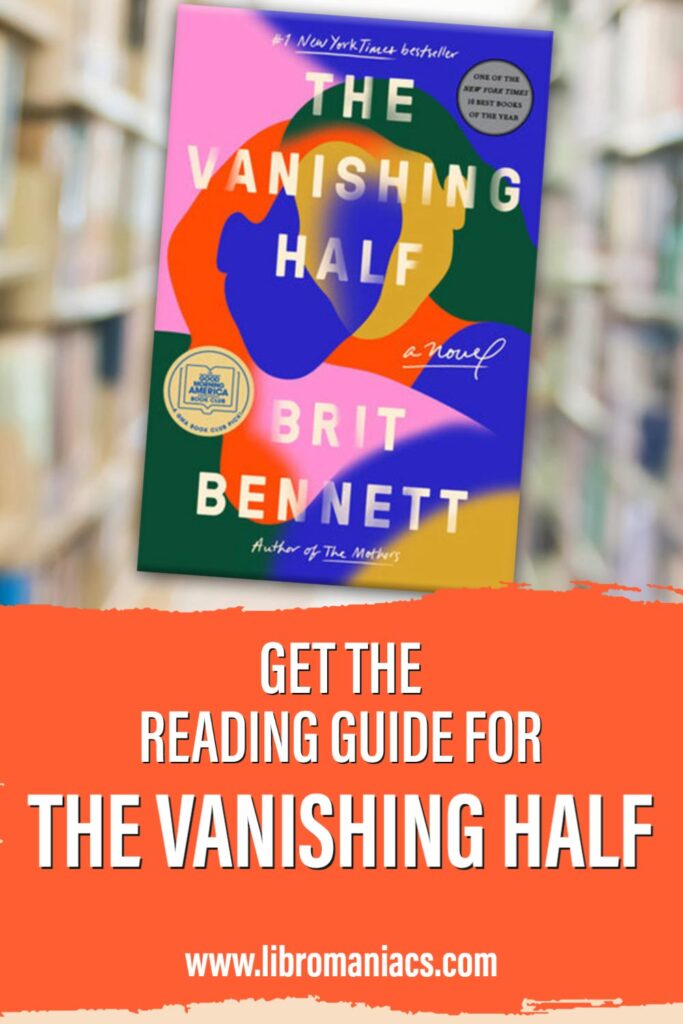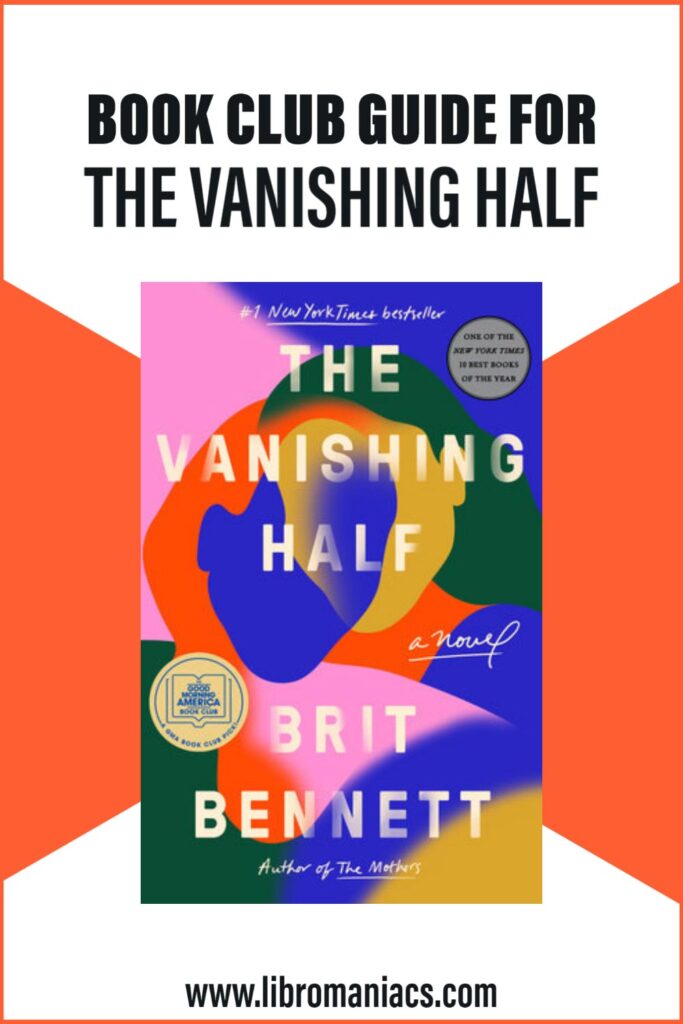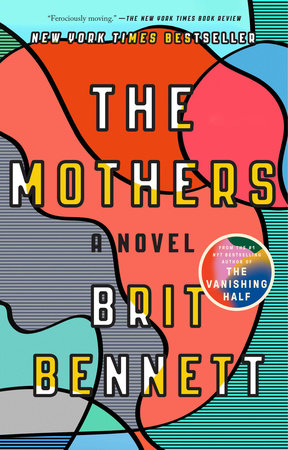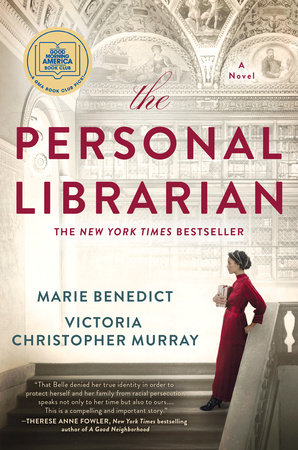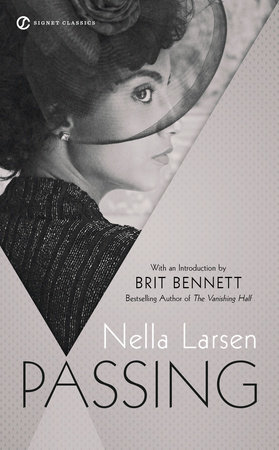Identity–whether we are born into it, or whether we choose it for ourselves–is at the heart of Brit Bennett’s The Vanishing Half. Although the intertwined lives of the characters span time and generations, all of the characters grapple with the powerful pull of the places they come from and the families who made them who they are. They inhabit a world that defines their worth by the color of their skin, who they love, and the mistakes they’ve made.
The Vanishing Half is all at once a complex novel and a simple story rooted in familiar themes that appeal to readers of diverse backgrounds. No matter our age or stage, readers identify with the central question of the novel: what will we do when the world wants to define us in a way we refuse to be defined?
This discussion guide and book club questions for The Vanishing Half will help you reflect on the powerful issues of race, class, and gender throughout the novel. Although the book confronts many sensitive topics, these book club questions will help your group navigate conversations in a mindful way. Our discussion guide for The Vanishing Half also includes a synopsis, selected reviews of the novel, and 3 books like The Vanishing Half that you’ll want to add to your library.
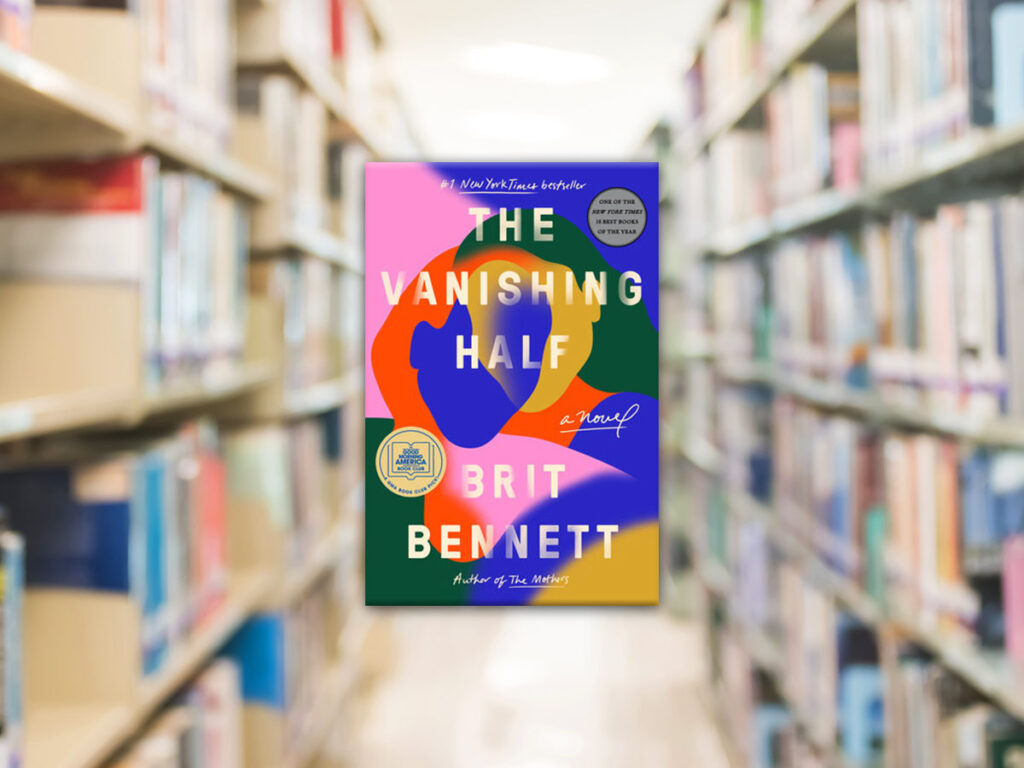
(This article contains affiliate links. This means that if you choose to purchase, I’ll make a small commission.)
The Vanishing Half Synopsis
The Vanishing Half, by Brit Bennett
(This book was long listed for the National Book Award)
The Vignes twin sisters will always be identical. But after growing up together in a small, southern black community and running away at age sixteen, it’s not just the shape of their daily lives that is different as adults, it’s everything: their families, their communities, their racial identities. Many years later, one sister lives with her black daughter in the same southern town she once tried to escape. The other secretly passes for white, and her white husband knows nothing of her past. Still, even separated by so many miles and just as many lies, the fates of the twins remain intertwined. What will happen to the next generation, when their own daughters’ storylines intersect?
Weaving together multiple strands and generations of this family, from the Deep South to California, from the 1950s to the 1990s, Brit Bennett produces a story that is at once a riveting, emotional family story and a brilliant exploration of the American history of passing. Looking well beyond issues of race, The Vanishing Half considers the lasting influence of the past as it shapes a person’s decisions, desires, and expectations, and explores some of the multiple reasons and realms in which people sometimes feel pulled to live as something other than their origins.
10 The Vanishing Half Book Club Questions
- Many of the characters in The Vanishing Half feel trapped by the expectations of society: Desiree dreams of bigger things than cleaning white family’s homes; Reese leaves the South as a woman and arrives in Los Angeles as a man; Stella sheds her Black identity for the privilege of whiteness.
What expectations have you had to confront in your life, and how have you either conformed to or rejected those expectations?
- Although on their face they seem like very different places, both Mallard and Los Angeles have a lot in common. Compare Mallard, LA and Brentwood, CA–in what ways are the two communities similar? What were the social, demographic or physical dividing lines in the community that you grew up in? How did those dividing lines influence the ways you perceived your neighbors?
- Stella seems to be the most outraged about the potential of a Black family moving into Palace Estates. Why do you think her reaction was so extreme? Do you think the friendship between Stella and Loretta could have ended any other way, considering the circumstances?
- Many of the women in The Vanishing Half spend time in relationships with men (Sam, Blake, Lonnie and Frantz) who control them, albeit in different ways. What is it about these men that Desiree, Stella, Jude and Kennedy felt drawn to? How did these women’s identities shape the choices they made in these relationships?
- The Vanishing Half spans multiple generations. Much changes over the course of the novel, but much stays the same as well. What aspects of progress did you see across the years, and what persistent inequities stayed the same?
- In a conversation about her novel, Brit Bennett said that she “didn’t want to punish Stella for passing… I was mostly thinking about what does her life look like after she has made this really big dramatic choice… and also the lives of those of her family.”
Do you think there was a way for Stella to adopt her new identity and stay in touch with her twin sister? Why do you think Stella so cut ties in such a severe way?
- The jobs that the characters hold–Bounty Hunter, Fingerprint Analyst, Actor, Realtor, Doctor, Professor, Photographer–all symbolize deeper concepts that are central to the novel. Choose one of these professions and reflect on why the author chose it for that character and what it says about the larger themes of the book.
- A reader can interpret the title of the novel in many ways. Why do you think the author chose this particular title? Have you ever felt like a part of you, or your past, has vanished? What are some parts of your life that you are grateful for vanishing?
- Trauma abounds in this novel. Many of the characters seem to bond over trauma, whether they are aware of it or not. In what ways have you seen generational trauma inherited, and in what ways do you see different responses to trauma play out in your family?
- The last scene of the novel is a powerful one. Read the final passages again and reflect on the symbolism of the moment and your interpretation of the line “They floated under the leafy canopy of trees, begging to forget.”
Selected Reviews for The Vanishing Half
“Completely absorbing. Intricate prose. Deep characterization. Bennett exceeded my expectations with her second novel.”
“Brit Bennett’s intricate plot lines and ability to weave family dramas that stretch through years is definitely something to be admired. my only wish is that her characters would jump off the page a bit more rather than just remain vessels/outlines for her stories to play out through.”
“The Vanishing Half is such an important insight to such an important series of topics and Bennett, as always, handles each with such care.”
“Brit Bennett’s second novel is a tour de force. The Vanishing Half gripped me from the very pages as I was instantly transfixed by Bennett’s subtle yet penetrating prose.”
3 Books Like The Vanishing Half
The Vanishing Half was a Good Morning America book club pic in 2020. If you like their choices, check out more of our GMA book club guides, including these other books featuring Black characters: The Violin Conspiracy, and The Personal Librarian.
If you are interested in some non-fiction that deals with Black identity, check out our guides for Caste (Isabel Wilkerson), Born a Crime (Trevor Noah) and Between the World and Me (Ta Nehisi Coates). For more siblings who go their own ways, check out our guide for Black Cake.
The Mothers, by Brit Bennett
The author’s first novel also takes on the issue of family secrets and the way past trauma shapes our future. A youthful romance leads to adult-sized problems as this novel, set in Southern California, explores the intersection of faith, family and grief.
The Personal Librarian, by Marie Benedict and Victoria Christopher Murray.
For fans of historical fiction, this novel imagines the life of a real woman–Belle de Costa Greene, the Personal Librarian to magnate J.P. Morgan. As Belle rises through the ranks of New York society, she must stay vigilant to protect the secrets of her identity.
If you choose The Personal Librarian for book club, we have a discussion guide for it.
Passing, by Nella Larsen
Written in 1929, this novel holds up as entirely relevant nearly a century later. While Harlem thrives in the 1920’s as a center of Black culture, two childhood friends reconnect. Both are Black women, but only one identifies as such. Recently adapted into a feature film, this quick read reminds us that even with all of the progress over the last 100 years, many of the tragic issues in the novel still persist today.
Have a listen on Audible. Try audio books for free for 30 days.
Share these book club questions for The Vanishing Half with your friends:
